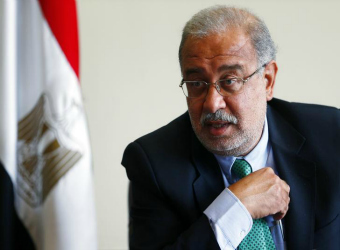Egypt’s Prime Minister Sherif Ismail has given government ministers a date of 1 July to start implementing a range of economic and social-security measures to lessen the economic burden on the average citizen, state-run news agency MENA reported on Monday.
The new policies are designed to lessen the impact of consumer inflation, which has seen a sharp increase in the monthly grocery bill of the average Egyptian.
The measures include monthly food subsidies being more than doubled for those using subsidy cards, rising from 21 pounds to 50 pounds per person, an increase of 140 percent. The measures were announced last week by President Abdel Fattah al-Sisi as part of the general budget for the financial year 2017/18. A draft of the budget, totalling 1.206 trillion pounds, was approved by parliament last Wednesday.
The measures were announced last week by President Abdel Fattah al-Sisi as part of the general budget for the financial year 2017/18. A draft of the budget, totalling 1.206 trillion pounds, was approved by parliament last Wednesday.
The national budget for food subsidies is set to increase from 45 billion pounds annually to 85 billion pounds in the coming financial year, which starts on 1 July.
Minister of Supply Ali Moselhy said on Monday that his ministry is ready to ensure the supply of large amounts of sugar and cooking oil in light of the decision to increase food subsidies.
Around 71 million people use the government’s subsidy cards to buy essential food items, including sugar, rice and cooking oil.
Last week, El-Sisi also ordered an increase in the budget allocation for income support through the Takaful and Karama (Solidarity and Dignity) programme.
The budget will increase from four billion pounds in the financial year the 2016/2017 to 8.25 billion pounds in the financial year 2017/2018
Established by the government in early 2015, Takaful and Karama aims to provide finanical support to the nation’s poor, with around 1.75 million beneficiaries,
Last week, the government also announced a special ten percent increase in the base salaries of those public employees who are not covered by the new civil service law.
Also announced was a 15 percent increase in state pensions for 10 million pensioners, with an increase in the state-pension budget from 160 billion pounds to 190 billion pounds.
Egypt started a fiscal reform programme in July 2014 in an attempt to curb the growing state budget deficit by cutting subsidies and introducing new taxes.
In November 2016, the Central Bank of Egypt floated the Egyptian pound, halving the currency’s value relative to the U.S. dollar.
Source: Ahram online
